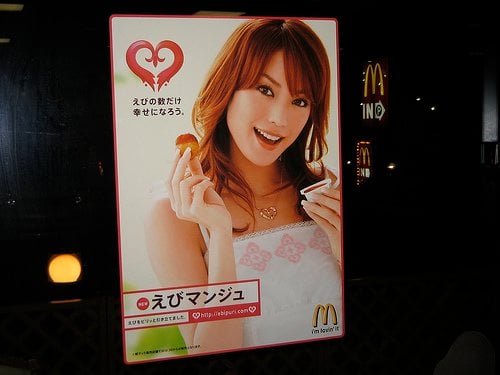We’re right in the middle of Golden Week, a cluster of Japanese holidays that usually fall near each other. One of three extended holiday periods in Japan (the other two being the Obon holidays in August and the first few days of the New Year), Golden Week has become sort of a national icon of Japan’s success in evolving to the point where its salarymen can actually stop working for a while and be with their families. It can be a difficult time for parents, though, with kids home from school, complaining loudly that they want to go somewhere fun. The problem is that there are potentially millions of other families in exactly the same situation, wanting to enjoy some quality leisure time during the holiday week, which means long traffic jams and lines everywhere. Tokyo Disneyland, for example, closes its doors very soon after opening each morning as it quickly reaches its occupancy limit. It can be just as bad out here in rural Japan, since Tokyoites are eager to get away from their asphalt and concrete jungle, so they come here. The other day I heard that the traffic jam to get to Karuizawa, a pleasant resort town in the mountains, was a whopping 27 km long. On Sunday there will be a mad rush to get back to the Tokyo area, with ten hours or more of sitting in traffic for everyone. Poor blighters.
My wife and I raise our two kids to respect both their Japanese and American halves, and we go out of our way to expose them to both cultures. I’ve made sure to “indoctrinate” my kids in various ways, introducing them to School House Rock and Star Wars and Raisin Bran and the Charlie Brown Halloween Special (“I got a rock” is a huge joke in our family). My wife handles the Japanese side of things, making sure they’ve got all the requisite cultural knowledge expected of them here, from how to say proper aisatsu (greetings) to people on the street to how to clean the family grave when doing haka-mairi (visiting the family grave to pay respects to family members who have gone on). She also handles their education, including drilling them in kanji writing. The day we feared as parents of bilingual children has arrived, though: our kids are starting to eclipse our own language abilities. My wife helps my son study for his Step test at level 2.5, usually only attempted by Japanese ten years older them him, and he often shocks her by knowing (or sensing) the correct answer to problems that completely stump her. I’m not off the hook, either: we sometimes have “kanji battles” between me and my kids, and all too often they eat me for lunch.
As awareness of Japanese animation and manga has grown over the past few decades, the word otaku has become quite well-known. Originally a polite word meaning “you” or “your family,” otaku has come to stand for anyone with a strong interest in anime, manga, cosplay, or any other aspect of Japan’s popular geekish sub-culture. Being an otaku in Japan does have its negative side, of course — in the new Apple commercial with “that new digital camera from Japan,” the Japanese woman says “Who is this person? He looks like an otaku” of the man representing the PC. There are several theories about how this everyday Japanese word attained this unique alternate meaning. According to one, the fact that “otaku” was spoken frequently by characters in the original Macross series caused fans to start using it, creating the beginnings of the otaku movement. Alternately, many of the employees of General Products, the model company that would go on to become the mighty Gainax, hail from Tottori Prefecture (the only part of Japan to sport its own desert), and in the local dialect, otaku is the most commonly used second-person pronoun.
Speaking of otaku, we just happen to have a cool new Japanese T-shirt that parodies the famous Oakley logo, changing it into a proud otaku badge you can wear for all to see. If you’re in touch with your inner geek and appreciate Japan’s unique pop culture, this is a great shirt for you!
Here are today’s “really cool products” that I thought were especially noteworthy. Note: the J-List links below may be for adult products and should probably be considered “not safe for work.” To see all the J-List products, check out J-List or the JBOX.com updated products link.















